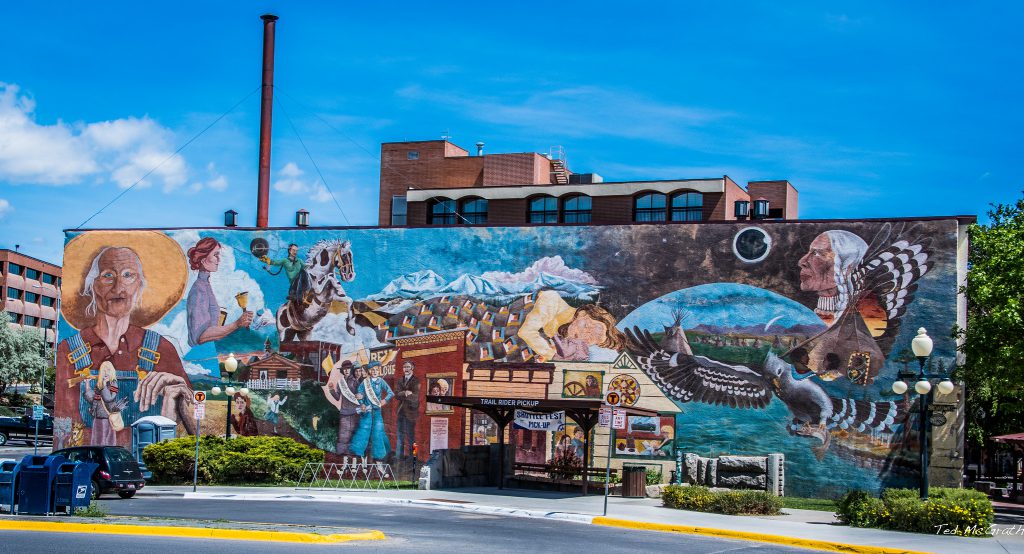

Did you know that back in the 1870s and 80s, prostitution was actually the largest source of employment for women in Helena, Montana?
Yes, it is true that during the 1870s and 1880s, prostitution was a significant source of employment for women in Helena, Montana. This was a common phenomenon in many frontier towns across the American West during that time period.
Helena, the capital city of Montana, experienced a rapid population growth during the 1860s and 1870s due to the gold rush in the area. The influx of miners, prospectors, and settlers created a booming economy, but also led to a gender imbalance, with men significantly outnumbering women. As a result, the demand for sexual services increased, and prostitution became a prevalent industry.
Historical records and accounts from that era indicate that there were numerous brothels operating in Helena. One of the most famous establishments was the "Alhambra Saloon and Dance Hall," which was known for its lavish interior and a large number of female employees. The "Gem Saloon" and the "Maggie Murphy's House of Ill Fame" were also prominent brothels in the city.
Women who worked in these establishments often faced challenging and dangerous conditions. They were subjected to exploitation, violence, and societal stigmatization. However, for many women in Helena at the time, prostitution was one of the few available options for earning a living. Some women engaged in sex work voluntarily, while others were coerced or trafficked into the profession.
It is important to note that the historical documentation on this topic may be limited, as the lives and experiences of these women were often marginalized and overlooked. Nevertheless, the prevalence of prostitution in Helena during the 1870s and 1880s is widely acknowledged in historical accounts and studies of the time.
References:
1. Smith, Duane A. "Prostitution on the Western Frontier." Montana: The Magazine of Western History 44, no. 4 (1994): 2-19.
2. Malone, Michael P., and Richard B. Roeder. Montana: A History of Two Centuries. University of Washington Press, 1991.
3. Friedman, Lawrence M. Crime and Punishment in American History. Basic Books, 1994.
Related Posts
© 2025 Invastor. All Rights Reserved

User Comments
Carla Rodriguez
2 years ago
Absolutely. It's through these conversations that we can gain a richer understanding of history and the diverse experiences that have shaped our world.
Bernard Johnson
2 years ago
And stories like these highlight the need to challenge our preconceived notions and look beyond the surface to truly understand the complexities of the past.
John Hussain
2 years ago
Very true. It's a reminder that even in the face of limited options, individuals can find ways to exert agency and make a mark on their communities.
Carla Rodriguez
2 years ago
It's also a testament to the fact that women throughout history have found ways to navigate societal constraints and economic challenges to create opportunities for themselves.
Bernard Johnson
2 years ago
Absolutely. It's a reminder that history isn't just a collection of facts – it's a tapestry of lives, choices, and contexts that can help us understand how societies have evolved over time.
Samuel Bautista
2 years ago
And it's important to approach these historical stories with empathy and understanding. These women were likely dealing with their own challenges and circumstances.
Carla Rodriguez
2 years ago
It's fascinating how certain industries, even those considered controversial, can play unexpected roles in shaping communities and economies.
Bernard Johnson
2 years ago
Right, and it's also a reminder that history is often complex and multifaceted. The stories of these women and their economic influence provide a glimpse into a part of history that might not be widely discussed.
Eloise Sahagun
2 years ago
It also raises questions about the dynamics between the prostitutes, the madams, and the clients. What were the power dynamics at play in that environment?
Carla Rodriguez
2 years ago
That's quite a twist. It's intriguing to think about how these women in a marginalized occupation were able to amass such wealth and even have an impact on the local economy.